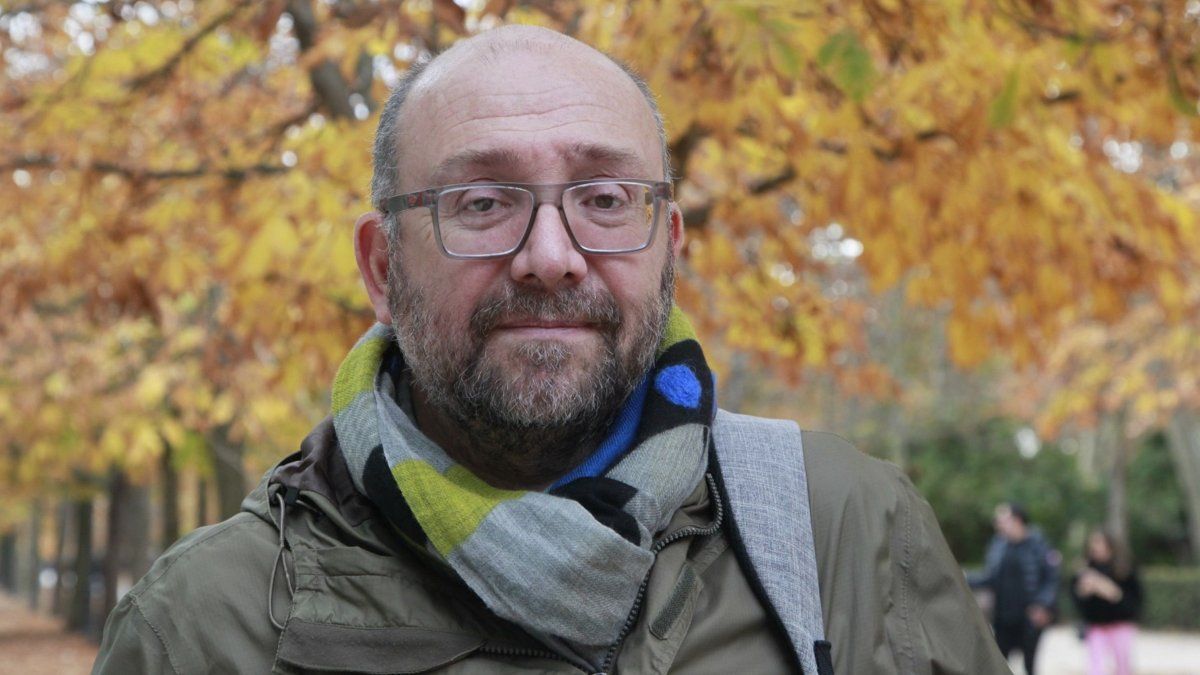Curious, surprising stories that mix the essay, the chronicle, and open another possibility to the literature of the self, travel “Antidotes against anxiety” (Godot editions) of Federico Lorenz. The author has published about thirty books where there are novels, biographies, historical stories, essays and studies on Malvinas. We dialogue with him.
Journalist: Why did he put a self -help book title to an autobiographical work?
Federico Lorenz: “Antidotes against anxiety” arose from my rereading of the book for publication and a dialogue with the editors. I saw that there was a tour of books that I had read, data I had met, facts that I had discovered and situations he had lived. For me it is a reminder of some things that made me reach this moment with a way of seeing the world. I suppose that in such a bad, negative, changing situation as the current one could serve to put in a wide and varied context to the reader, add perspectives.
Q.: How does the idea of varied notes linked by dates arise?
FL: He started from the suggestion of a friend who lives in Sweden with whom we made the habit of commenting news, books, politics, all those things that one talks to friends. In one of those mutual recommendations of readings several times highlighted the work of the Swedish writer Sven Lindqvist, whose work was not yet translated into Spanish, and told me that, in one of his books, “the stars in the underground sky,” he had made a diary of what he read or happened to him, which was a kind of cultural road map, where he accounted for his passions and political and literary obsessions. His starting point was the constellation of those books and authors that he returned frequently. It was then that my friend proposed why I did not rehearse to work in that formula, in those characteristics.
Q.: “Antidotes against anxiety” is a tour of your readings?
FL: Among other things is an arbitrary tour, cut, of a compulsive reader. I sought that those readings appear that, for some reason, that I tell, at a given time, have been decisive to me. You might think that it is an intellectual autobiography, always provisional, as are all intellectual biographies.
Q.: Why did you choose a chronological order, although arbitrary, which remembers Brecht’s “almanac stories”?
FL: While I follow the order of the days and months, I do not follow the order of the years. The idea was that, if someone wants to read the book continuously, walk to the jumps or look at a certain day to see what happened on that date or what I propose to think, I could be able to do it.
Q.: Did you seek to transfer the “even if you do not believe” by Ripley to literature?
FL: I have Ripley’s work the childhood memory of his vignettes in the newspapers and the television program, but that is not what I looked for. Although sometimes in my book there is something that Ripley offers, the curious fact, the little known data, the fact that surprises or moves. I had the baggage and the variety of topics that arise from my activities such as historian, fiction writer, researcher and teacher. In addition, there was the chosen format, which has something of the personal newspaper and is not, and also lent itself to that. There was also the fact that texts have different extension. Mark Twain said that “what becomes interesting and attractive to horse racing is the speed difference of animals.”
Q.: There are writers that appear repeatedly.
FL: And others that are mentioned when passing and some that I would have liked to review and are not. Among those who repeat Dickens, Mark Twain, Robert Graves, because they have been important in my formation.
Q.: Why are there cases, like George Orwell, who shows them in their contradictions?
FL: All at some point we are contradictory, why it would not be Orwell. Serious, whom I admire, at times is an elitist person, but who made a cult of friendship, celebrated to meet with different people, people from the most diverse sectors and origins. One of the “antidotes …” entries is about that. Just as he joined members of the English nobility or the high bourgeoisie did it with workers in London or peasants in Mallorca. He liked to get to chat with people he disagreed. That open attitude has made me reflect on its way of understanding friendship and what we do not lose with a closed attitude.
Q.: Only one rarely stories of Malvinas appear, theme of which he is a specialist …
FL: Thrice. One about a shipwreck in the nineteenth century, another on a postwar bar that serves me to think how we received those who had fought on the islands, and another about the experiences of the inhabitant islanders of Malvinas. I could have added more because it is an issue that goes through me.
Q.: Did the historical mark it as much as the literary?
FL: I would dare to say that I am a historian because I like literature. I try to sustain the friendly conflict between both disciplines. In “Antidotes” as well as there are tickets about writers stories, for example: Saramago, there are about historians, for example the Frenchman Marc Bloch who was a member of the resistance. Well, history goes through “antidotes …” from the subtitle “a world history in 108 dates.” On the other hand, if we return to the autobiographical one, to which he links this book with the literature of the self, I would say that it is to seek the different ways of telling from what has been read and what has been learned in the world.
Q.: What are you writing now?
FL: I am finishing a book of stories for children about Malvinas, and starting a novel about a teacher on the eve of his retirement, which is self -referential but not autobiographical, I need to reach that moment
Source: Ambito
I am an author and journalist who has worked in the entertainment industry for over a decade. I currently work as a news editor at a major news website, and my focus is on covering the latest trends in entertainment. I also write occasional pieces for other outlets, and have authored two books about the entertainment industry.




